
Vol. XXIII, No. 2, February 2023
- Editor's corner
- American bowling is in a knock-down fight over new high-tech pins
- Scrimp and splurge arrives
- Zillennials and their disposable income
- How large an industry is agritourism?
- Climatarian? Regenivore? New diets take aim at climate change
- What have at-home workers done with their saved commuting time?
- Pickleball growing faster than previously thought
- Anyone got the wakeup call?
- Americans demand businesses be value-driven
- An American pioneer in competitive socializing
Americans demand businesses be value-driven
According to research by Ipsos, Americans are among the world's most engaged consumers regarding social and environmental issues. They are also above average in aligning their social, environmental, or ethical values with their spending habits.
Over one-third of American consumers (35%) have made or changed a purchase decision based on environmental, social, or ethical concerns.
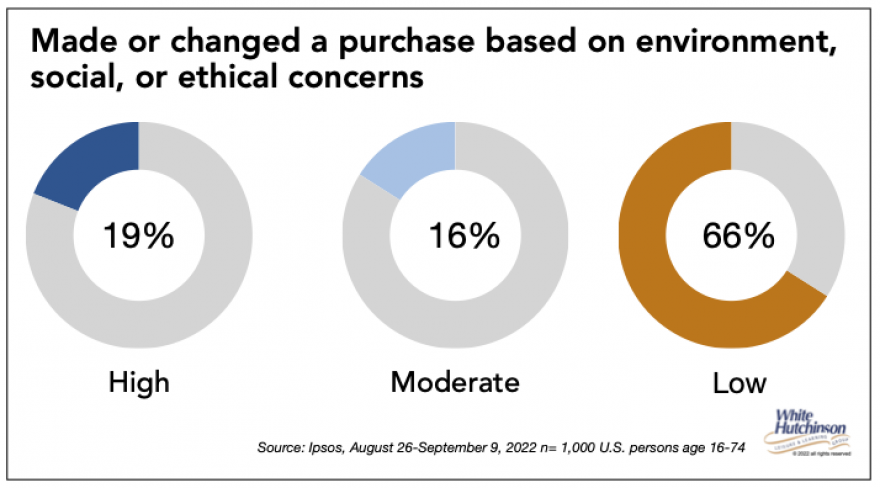
Out of those concerns, ethical worries have the most impact, followed closely by social and environmental concerns.
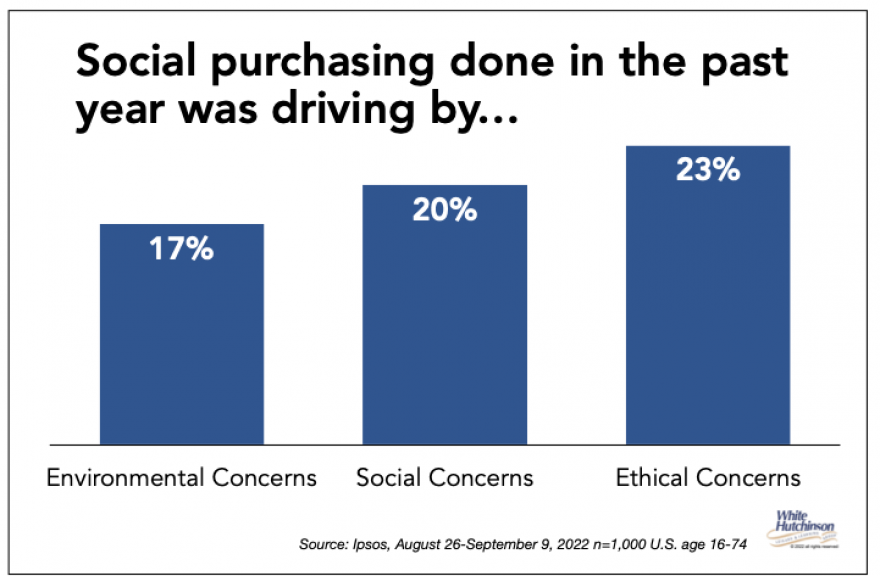
Gen Z are the most concerned about making socially conscious purchases at 43%, followed closely by Millennials at 40%. Men are more likely to be socially conscious purchases than women.
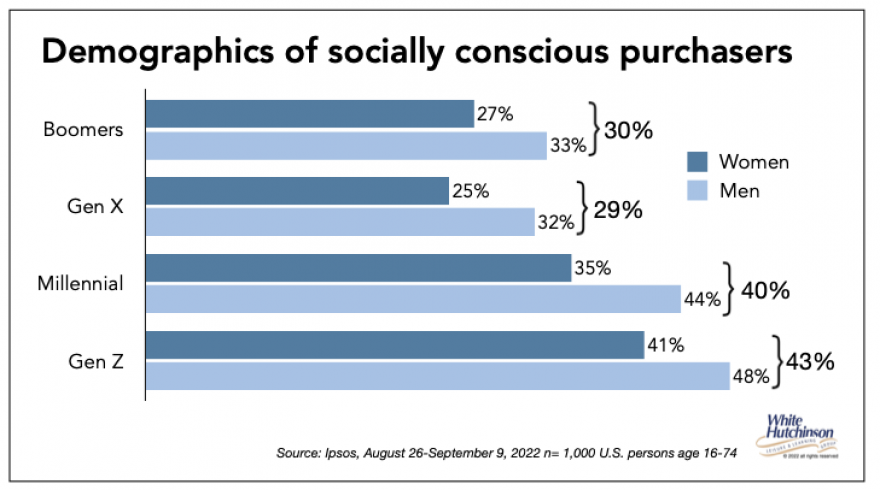
Ipsos's research found that of the 25% of Americans who are engaged in socio-political issues - frequently write online content, give money to a charity, or participate in a protest or cause - who have not yet acted with their purchases have the potential to convert to socially conscious purchasers. Older consumers and women are more likely to be convert.
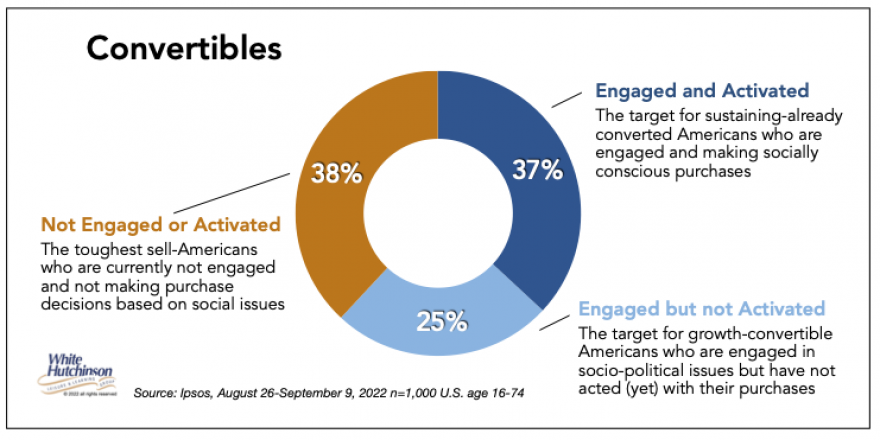
A Bently University/Gallup in June 2022 examined how important businesses' adherence to five environmental and social goals was to U.S. adults:
- Operating in a way that is sustainable for the environment and planet
- Reducing carbon footprint and/or emissions
- Focusing on long-term benefits to society instead of short-term profits
- Promoting diversity, equity, and inclusion
- Creating opportunities for low socioeconomic groups
The survey found that young adults, those aged 18 to 29, are more likely than those in older age groups to say it is "extremely important" for businesses to have a solid moral compass on all five environmental and social goals:
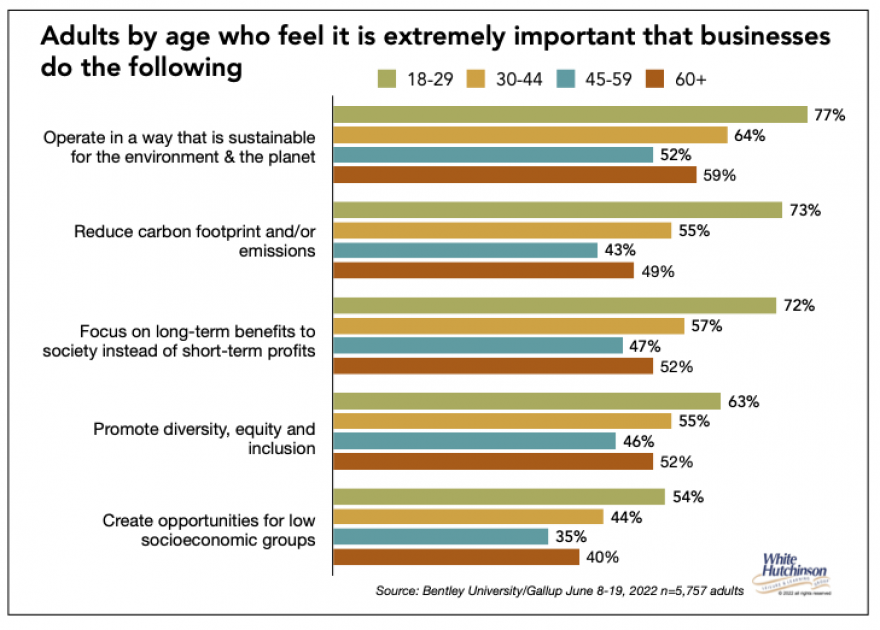
Notably, the percentage of older adults who view these social and environmental goals as extremely important is higher than the percentage among middle-aged people. The results hold true across major political parties -- among both Republicans and Democrats.
The survey suggests that businesses should consider their reputation for environmental and social responsibility for not only attracting customers and new young workers but also for retaining current employees. Overall, more than half of current U.S. employees (55%) say they would leave their current employer for a company that demonstrates a genuine commitment to being a "force for good" that contributes more to their sense of broader purpose, with the highest percentage of 71% for workers aged 18 to 29.
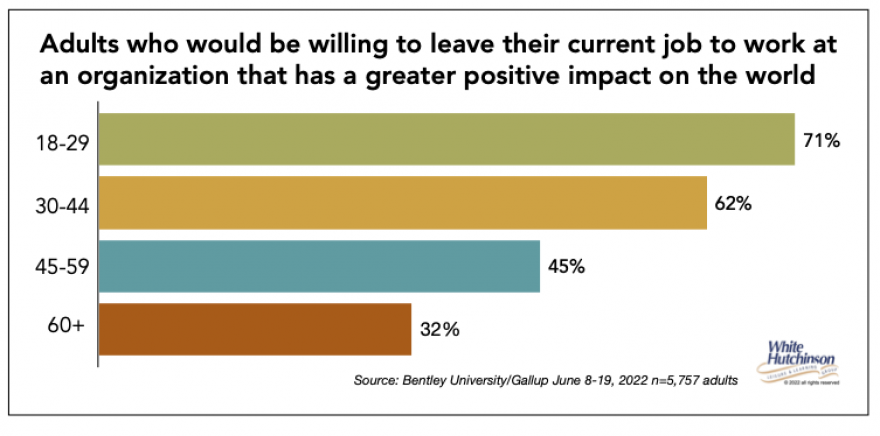
Vol. XXIII, No. 2, February 2023
- Editor's corner
- American bowling is in a knock-down fight over new high-tech pins
- Scrimp and splurge arrives
- Zillennials and their disposable income
- How large an industry is agritourism?
- Climatarian? Regenivore? New diets take aim at climate change
- What have at-home workers done with their saved commuting time?
- Pickleball growing faster than previously thought
- Anyone got the wakeup call?
- Americans demand businesses be value-driven
- An American pioneer in competitive socializing


